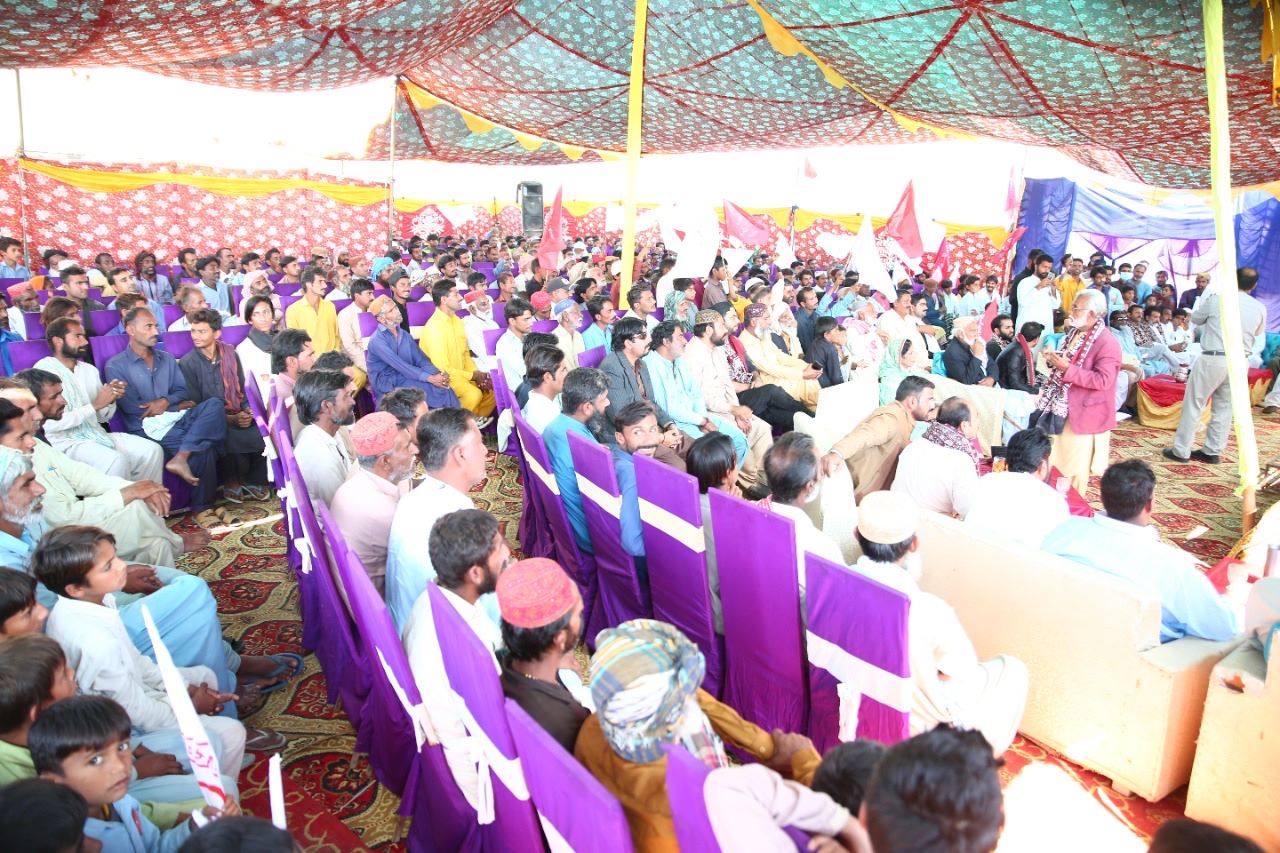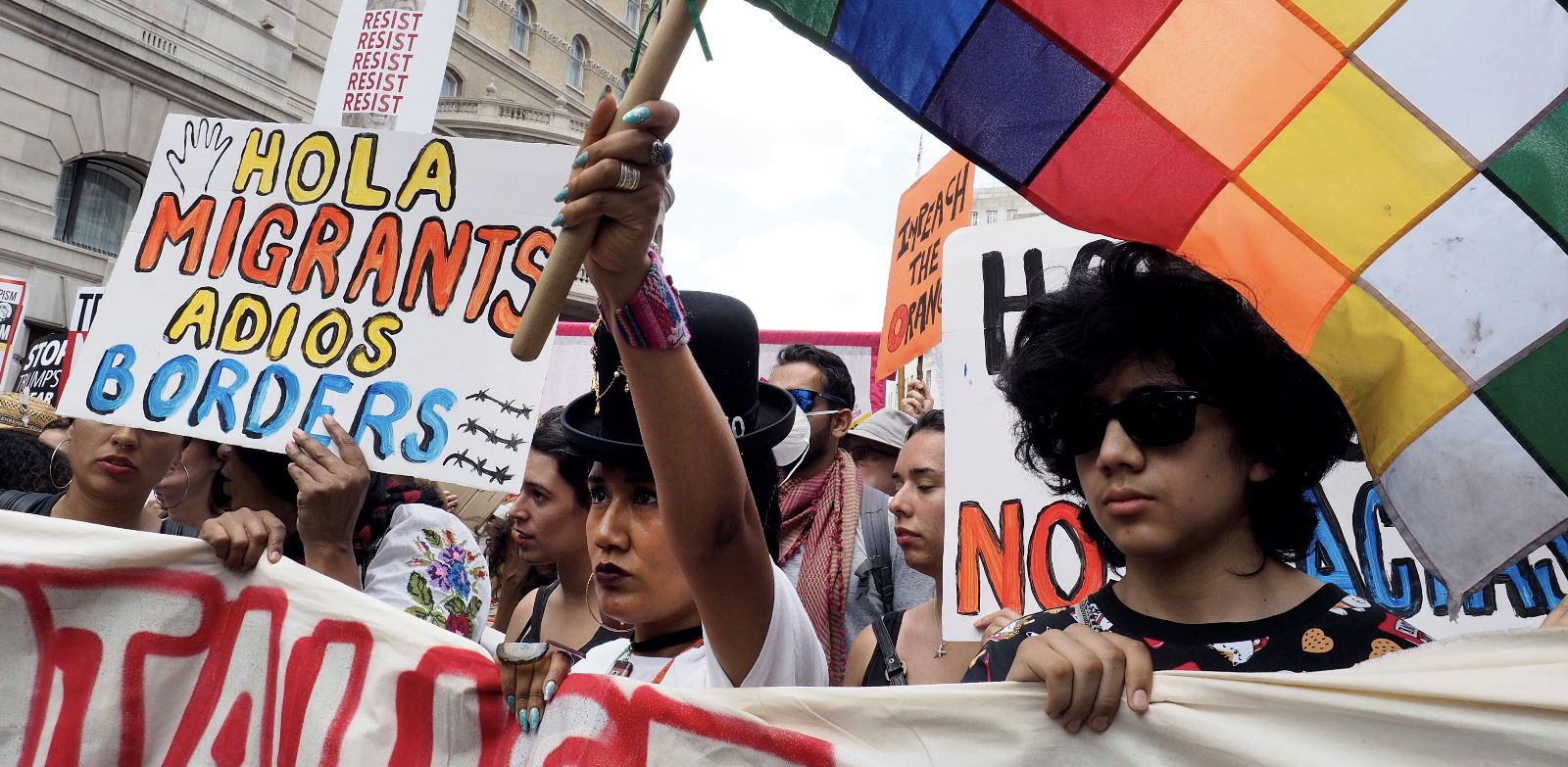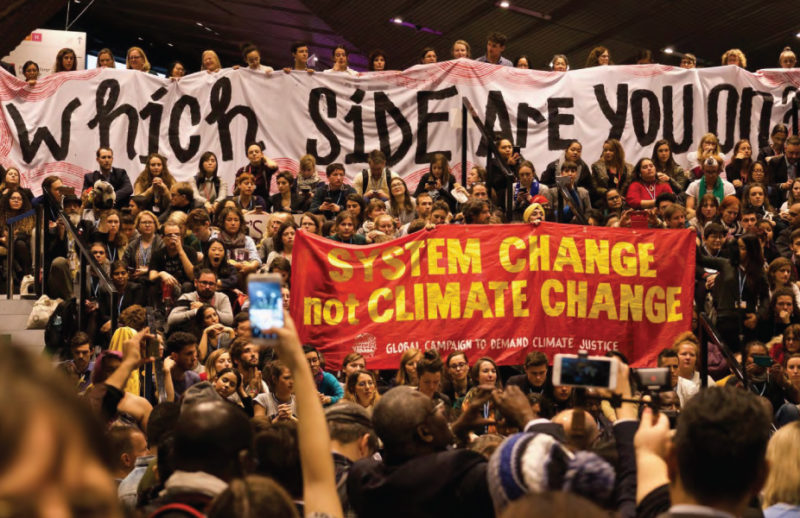- The Intersections of Injustice
- Migration and the Climate Crisis
- Borders and the Securitisation of the Climate Crisis
- The Hostile Environment
- Get Involved – Supporting Migrant Justice
The Intersection of Injustice
The most marginalised communities are on the front line of the climate crisis and often face its worst impacts. Indigenous peoples, small-scale farmers, and communities living in poverty are disproportionately impacted by intersecting multiple global crises. These communities are forcibly displaced & then routinely denied the right to migrate safely. The climate justice movement must centre these communities and foreground their struggles.
The structural inequalities embedded within our global economic system exacerbate these injustices. Rich, industrialised countries and corporations, who have historically contributed the most to the climate crisis, refuse to do their fair share. Instead, they continue to profit from industries that perpetuate the crisis. As the climate crisis worsens and the impacts on people in at-risk communities become more severe, people on the front lines are being forced to leave their homes. Most are displaced internally with a small number crossing borders in search of a dignified life. In response, countries in the Global North are spending billions on violent border systems that perpetuate existing inequalities – money that could be spent on climate finance, adaptation and reparations.
This article will introduce and explore some of the aspects of the complex intersection between climate justice and migrant justice. Drawing on existing resources we hope to catalyse the conversation around these issues, as a first step towards building long-term solidarity between the two movements. The next step is an online panel on the 27th July at 18:00, more info will be coming soon so save the date : )

Image Credit: Chris Afuakwah
Migration and the Climate Crisis
The devastating impacts of the climate crisis are undeniable. Unprecedented global temperatures, extreme weather events, and environmental degradation are displacing communities across the globe. People move, and have always moved, for a myriad of reasons: navigating environmental and socio-economic systems, seeking lives of safety, dignity and agency that bring diversity and beauty to communities worldwide.
As the climate crisis deepens, more people will have to leave their homes. In the Pacific Islands, for example, rising sea levels threaten the very existence of entire nations, forcing people to seek refuge elsewhere. Climate breakdown further exacerbates existing social and economic inequalities, pushing people into even more vulnerable situations through conflict and scarcity. Climate migration does not occur solely because of climate breakdown, but hinges on many variables. The majority of migration globally is internal, and in Britain, we are beginning to see the challenges and nuances of climate migration around coastal communities.
Devastating floods in Pakistan have severely impacted farmers, peasant communities, and the landless — often leading to forced displacement inside and outside of Pakistan. These groups, who heavily rely on agriculture for their livelihoods, bear the brunt of climate breakdown and are denied compensation despite loss and damage commitments on the global stage. Floods in rural Sindh have left peasants grappling with poverty as their crops, livestock, and land are destroyed, leaving them at risk of being exploited for labour, or forcing them to abandon their homes.
There can be no just transition without justice for migrants, Indigenous and First Nations people. International climate justice is organising in this context around two key principles: the right to stay – to defend communities from the impacts of climate change, and the right to move – safely and with dignity, when staying is not possible. Migration is part of the solution to the climate crisis, ensuring that people are able to adapt to a changing environment.
Resources
- Joint Council for the Welfare of Immigrants: Climate Justice = Migrant Justice
- Alex Randall: The IPCC Report on Climate Driven Migration

Image Credit: War on Want & partners LEF, organising communities in the aftermath of the devastating floods in Pakistan
Borders & the Securitisation of the Climate Crisis
Governments increasingly view border controls, walls, and surveillance as a way to control the impacts of the climate crisis. They spend billions propping up the Border and Surveillance industry that profits from the abuse of refugees and migrants. It was recently reported that the Home Office has provided more than £3m in funding to the Turkish border force in the last year, to prevent people reaching the UK to claim asylum. Forces funded by the Home Office have been filmed shooting at people crossing from Iran into Turkey and beating people with rifle butts.
States typically define borders as control over land, resources and people. They are enforced physically through infrastructure such as fences and cameras, policing and detention, and extend into everyday life by restricting people from social institutions such as housing, work and healthcare. Border systems depend on (and create) narratives that attack and dehumanise migrants, casting a diverse range of people as criminals or victims to be controlled by the state. The violence and human rights abuse of migrants through border regimes globally is well documented. These regimes support the systems of exploitation that perpetuate the climate crisis.
This report from TNI finds that the world’s biggest emitters of greenhouse gases are spending, on average, 2.3 times as much on arming their borders as they are on climate finance. This figure is as high as 15 times as much for the worst offenders. The UK has spent approximately $2.7 billion on border militarisation per year between 2013 and 2018, and just £977 million on climate financing. Resources are spent dividing people across arbitrary lines, rather than fixing the real issues we all face.
Alarmist concerns about climate migration contribute to framing the climate crisis in terms of security, casting migrants as a threat to society. For example, news articles warning of ‘waves of climate migrants’ echo xenophobic, far right rhetoric that dehumanises migrants. This type of narrative legitimises state inaction on the climate crisis as well as more brutal border policies. Similarly, focussing demands on ‘climate migration’ alone risks reducing migration to a single, simple factor and can remove a person’s agency – feeding the idea that migrants exist to be ‘controlled’ and categorised into deserving and undeserving of support as the climate crisis deepens.
Resources
- Dr Arshad Isakjee: Borders & Violence – Video & Resources
- InfoMigrants: Tales from the Border Podcast
- Jeremy Adelman & Caitlin Zaloom: Migrant Lives, Global Stories
- 350 Toolkit: Talking Climate, Migration & Borders in a Heating World
- 350 Toolkit: How to talk about Climate-linked Migration
- Transnational Institute: Global Climate Wall
- Nathan Akehurst and Petra Molnar: Border Violence and Security in a Warming World Podcast
- FoE Action/TNI Video: Cashing in on Crisis: How the World’s Largest Investors Fuel and Profit from Climate Change and Border Militarization

Image Credit: Chris Afuakwah
The Hostile Environment
In Britain, the ‘Hostile Environment’ cuts migrants off from social institutions and resources (such as healthcare) and enforces detentions and evictions under brutal circumstances. It enables the exploitation of migrant workers in vital industries. Recently we have seen a rapid acceleration of violence towards migrants from both the state and also the far right that is crystallised in the ‘refugee ban bill’ – which effectively removes the possibility of asylum for any person that arrives on a small boat, despite the lack of safe routes to make these claims. Anti-migrant rhetoric coming directly from those in power has been followed by racist attacks on detention centres and migrant housing. At the same time, local authorities are denied funding for flood and coastal defences, meaning communities have to watch as their homes are destroyed, denied even basic compensation.
There is no clear evidence that the Hostile Environment achieves its stated aim of forcing people out of the UK or dissuading people to move here. A diverse range of migrant justice groups work to support and empower migrants in the face of the extraordinary amount of damage that it causes.
Resources
- JCWI: The Hostile Environment Explained
- Refugee Action: A Decade of Hostility
- Refugee Council: Understanding the Refugee Ban Bill
- Community Tales of Resistance: No Small Victories Podcast
- Solidarity Knows No Borders Yorkshire: Migrant Justice Solidarity Video

Image Credit: War on Want
Get Involved – Supporting Migrant Justice
As racist attacks on migrants increase, the Climate Justice movement will stand up in solidarity. Climate Justice means that we support, celebrate and empower those most affected by oppression. Connecting these issues means listening and learning from migrant groups in our communities. Get involved and help out where you can!
Celebrate Refugee Week: 19th – 25th June
- Find and take part in events and activities in your area
- Refugee Festival Scotland
- Take simple acts with your group, like a shared meal or film screening.
How can you support migrant justice in your community?
- A great first step is to think about groups you are already connected to through local climate action, do they have upcoming events? What support can your group provide?
- Find other local solidarity groups and send a message to ask if there are ways you can support, for example:
- – Welcoming, support & justice groups: https://firmcharter.org.uk/
- – Community anti-raids: https://antiraids.net/local-groups/
- – Detention support: https://aviddetention.org.uk/
- – Local City of Sanctuary groups: https://cityofsanctuary.org/
- Joint Council for the Welfare of Immigrants: Resist the Hostile Environment Toolkit
- Together with Refugees: Hospitality not Hostility – fighting the Refugee Ban Bill
Supporting online:
Many groups and campaigns have online actions, and a great way to show solidarity is to follow them on social media and reshare content. Amplifying migrants’ voices can be really powerful.
Migrant Voice Twitter | Instagram | Facebook
We’re a migrant-led organisation empowering migrants to speak out, challenge perceptions and change public debate.
Creating a better conversation about our society; one which celebrates people who make the UK their home & helps us all live well together.
Migrants’ Rights Network Twitter | Instagram | Facebook
We stand in solidarity with all migrants in their fight for rights and justice.
Detention Action Twitter | Instagram | Facebook
Human rights charity on the frontline of immigration detention in the UK, providing direct support and campaigning for reform.

Image Credit: DJC / FOE International